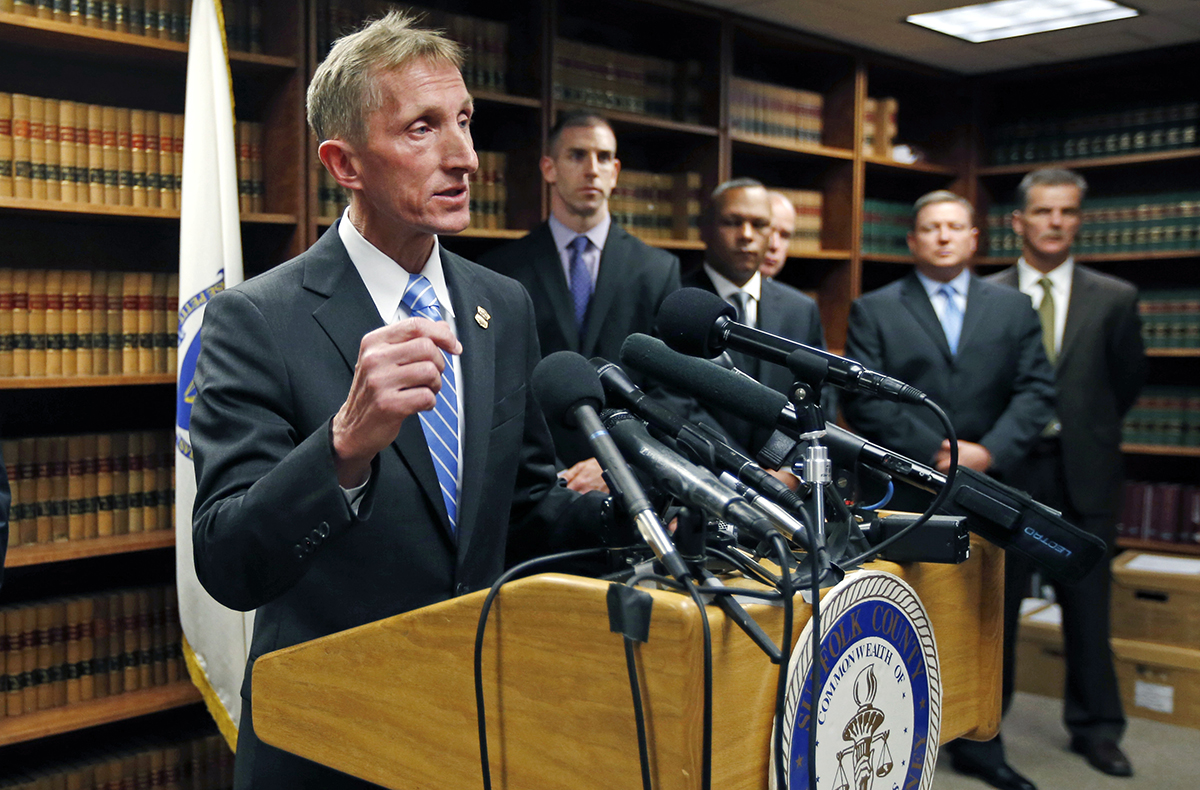Boston Police Commissioner Wants Laws on Civilians Recording Cops

Photo via AP
The concerns Boston Police Commissioner William Evans has about the use of cell phone cameras to record daily encounters between civilians and police officers are so strong that he wants to see some kind of legislation on Beacon Hill regulating the activity.
During an interview with the Boston Herald on Monday, Evans said the practice has become so common that it is now a distraction and potential safety problem for his officers across the city.
“It can be irritating for our officers when someone has a camera right up in their face,” Evans said.
So Evans wants a law that would create “some distance” between officers and people with cameras, though it’s unclear how such a law would survive under judicial scrutiny.
During his interview with the Herald, the commissioner cited several instances he was bothered by in the last year that involved police officers engaging with people on the street and civilians recording their actions. One instance involved a group recording a cop struggling to apprehend a suspect.
“In need of help, officers asked members of the crowd and a security guard for help. No help was offered,” Evans said.
This, too, is something Evans thinks can be legislated against. He wants to see people charged if they do opt to record an officer instead of help him if he is struggling with a suspect.
The argument over the legality of civilians recording police officers has a long history in Boston.
In 2007, Emerson College student Simon Glik was arrested by Boston police officers for recording them arresting a teenager on Boston Common. The charges against him were later dropped, but he challenged his arrest anyway through a variety of channels before taking it all the way to the First Circuit Court of Appeals.
The court eventually ruled in his favor in Glik v. Cunffie, stating that private citizens have the right to record public officials in a public space. The acceptance of the ruling by officers across the Commonwealth has not exactly gone smoothly, but departments are making efforts to educate officers on the new reality.


